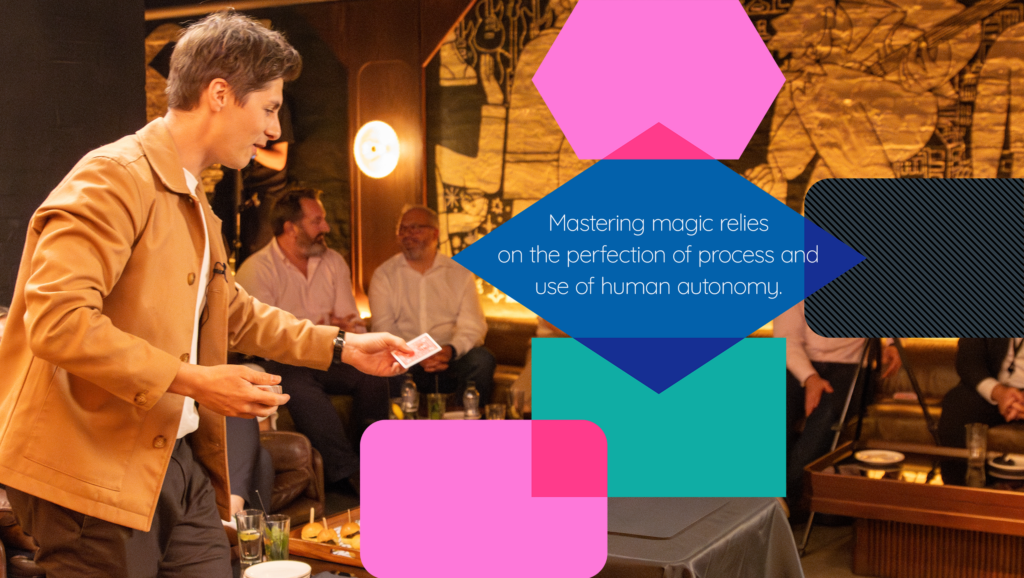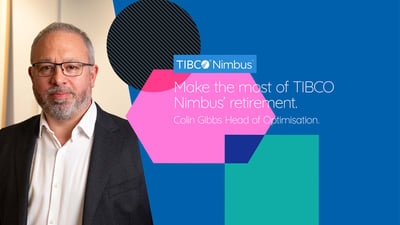Mastering magic relies on the perfection of process.

Pace believes that intelligent, well-designed processes coupled with the right systems unlock humans’ ability to operate at their peak; precisely, creatively, emotively, with shared purpose and autonomy.
In pursuit of perfecting process design, Pace invited TV magician Ben Hanlin to demonstrate the relationship between system, process and human connection that create his awe-inspiring and award-winning performances.
There are only seven tools a magician can use to perform magic. The clever use of process unlocks the potential of these tools to create multiple performances. It is the mastering of these processes, however, that allows Ben to connect with his audience in the moment and create amazement.
To demonstrate the difference between the mere performance of a trick and the making of magic, Ben gave members of the audience two tricks to learn as a process. He then brought in an expert magician who performed after the volunteers and delivered a completely different performance with the same trick. Ben showed us that it’s the ability to apply the process seamlessly with human autonomy that provides the greatest impact.
Ben gave the audience two tricks to learn as a process, which they then performed successfully. But he then brought in an expert magician who performed the same tricks, but demonstrated what happens when you’ve mastered a process, so much so that you can then focus on the things that really count, which in this case is creating a human connection and making our audience feel amazed and astounded.

From the exercise, Ben demonstrated that:
- Tools alone can’t make magic. There are only seven tricks a magician can perform. Creating a new trick means starting at the end and thinking about the outcome you want to achieve, not what can be performed with these tools. Design the process to achieve the outcome. A bad magic trick happens when, during the process development, there is compromise that weakens the end result.
- Processes need to be refined to succeed, and that takes time. A new trick is designed, and then it is tested, and normally, it fails. So an adjustment is required, which also usually fails. This process is repeated, hundreds if not thousands of times, until eventually an audience see an incredible outcome. Penn and Teller once said it can take them seven years to master a trick.
- It doesn’t matter how good the process is if there is no connection between people. Any magician can make you pick a card and put it in the deck and find it again. But the best magicians do that in a way that builds drama, suspense and jeopardy. It’s more than just somebody going through the process. That feeling of amazement and astonishment is achieved when the magician has mastered the tools and the process to a point where it becomes muscle memory, allowing them to focus on being present in the performance and deliver what really matters, which is how they make the audience feel.
Pacesetters is a series of events that look across industries and disciplines to explore the relationship between systems, process and human autonomy in creating the best performance. If you would like to attend our next event, please contact us for more information.







-01%20(2)%20bw.png?width=1440&height=1440&name=2025%20ST_HUNDRED_LOGO_HOIZ_1x1_RGB%20(1)-01%20(2)%20bw.png)